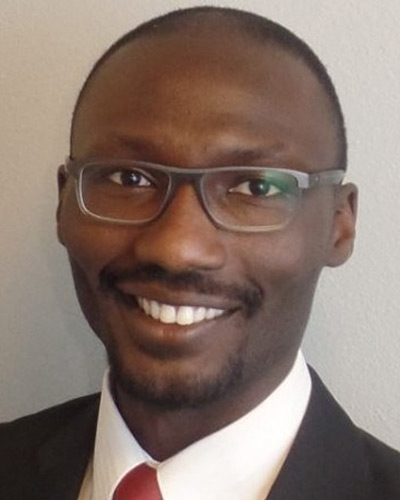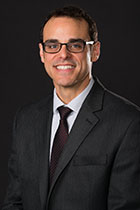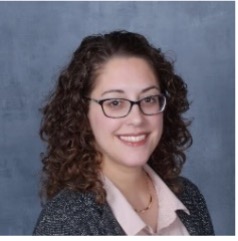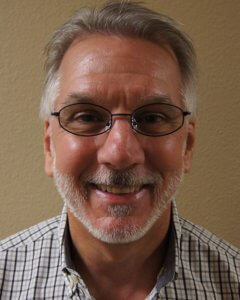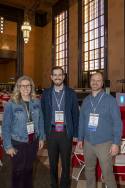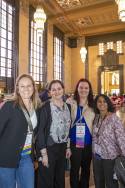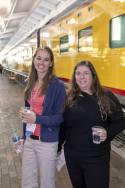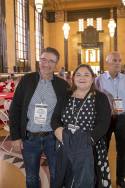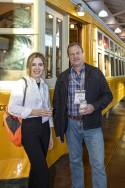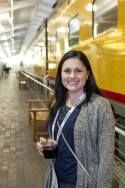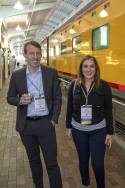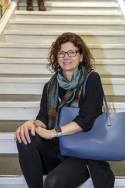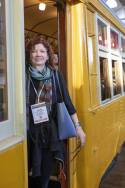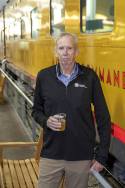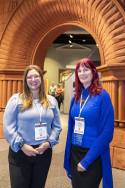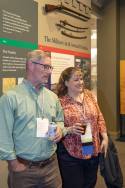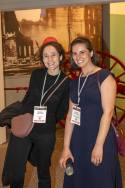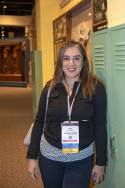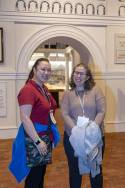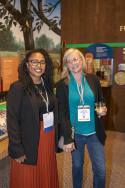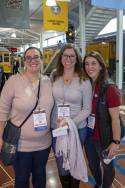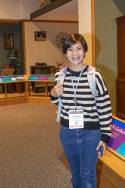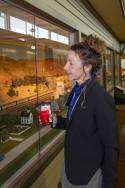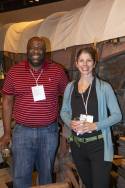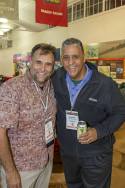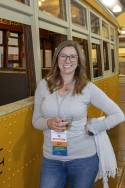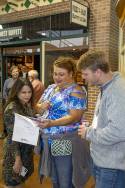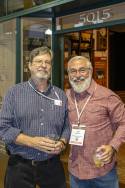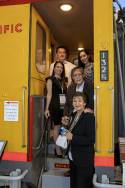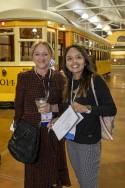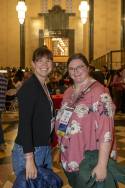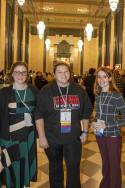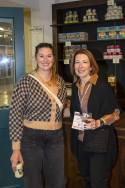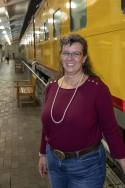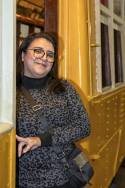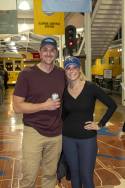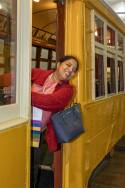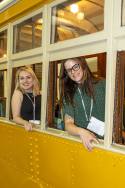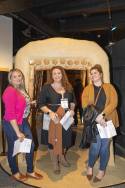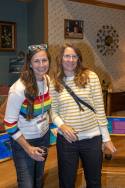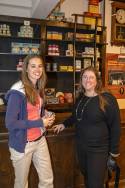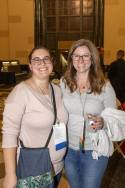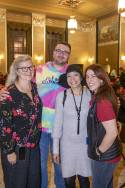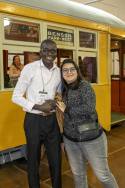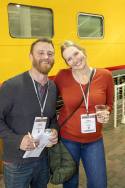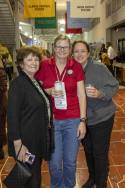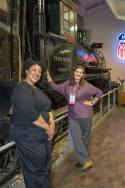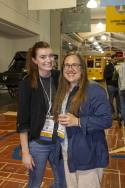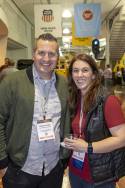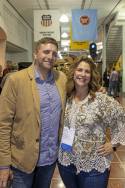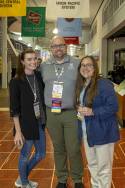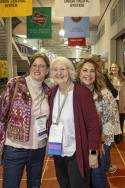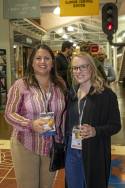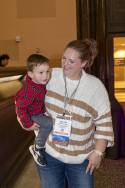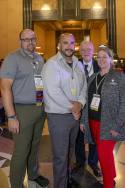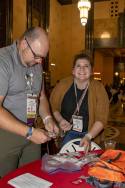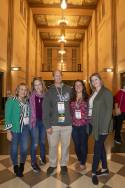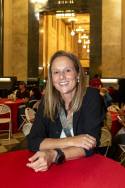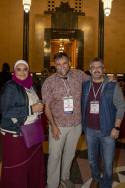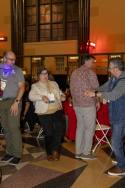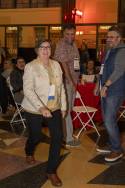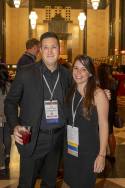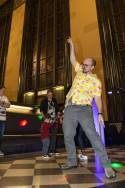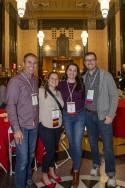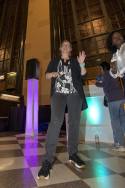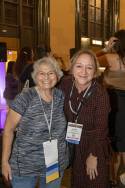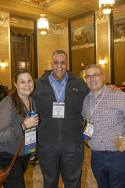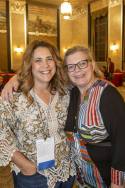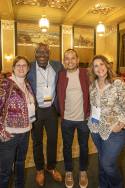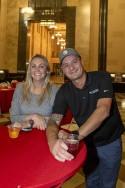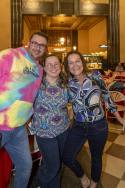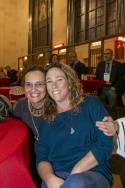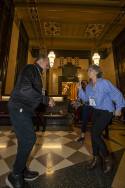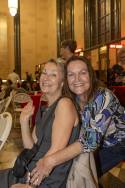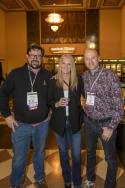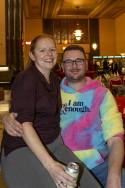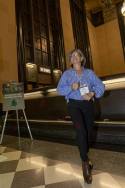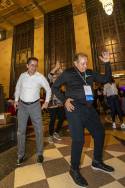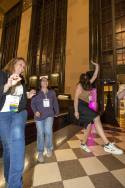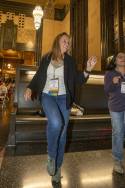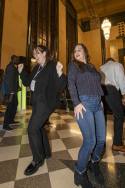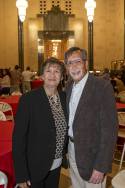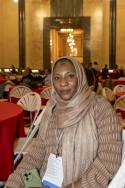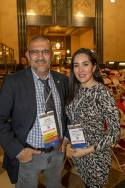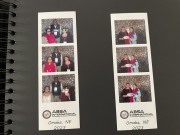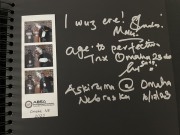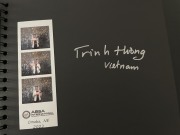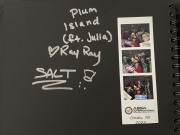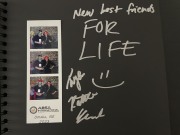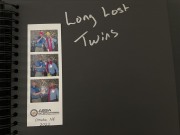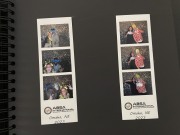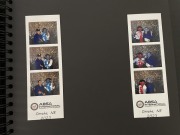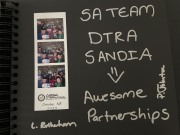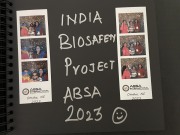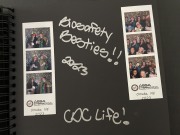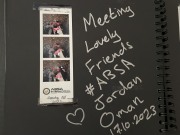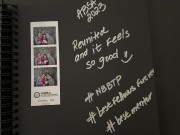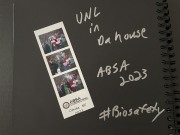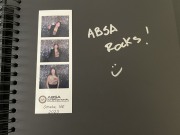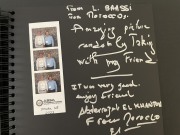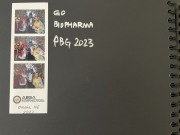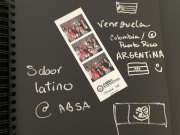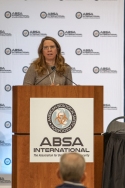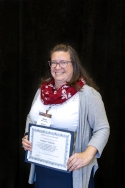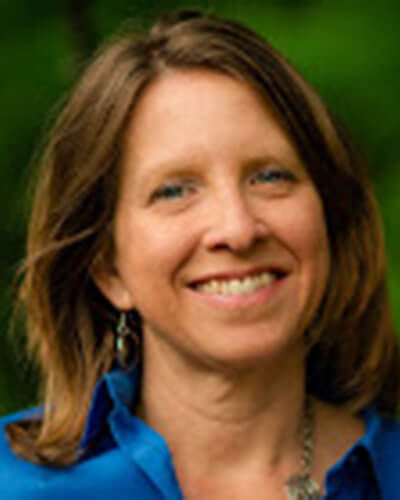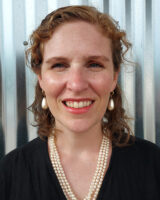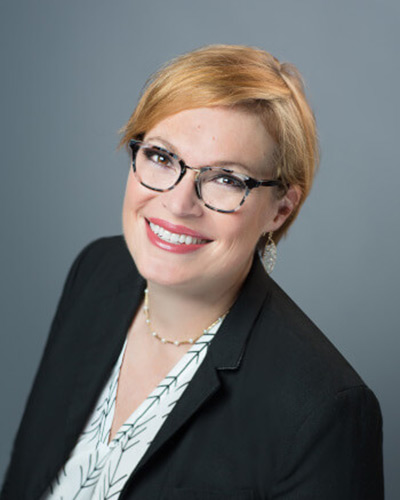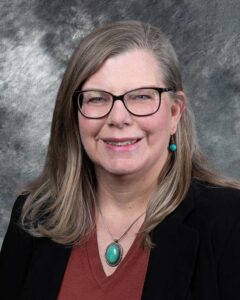66th Annual Biosafety and Biosecurity Hybrid Conference
Scientific Program
October 16-18, 2023
All times listed will be CENTRAL Standard Time
Sunday, October 15, 2023
6:30 – 8:30 pm Opening Reception in the Exhibit Hall
Monday, October 16, 2023
7:00 – 5:00 pm Registration
7:00 – 8:00 am Continental Breakfast in Foyer
9:00 – 4:00 pm Vendor Exhibits
8:00 – 8:15 am Welcome and ABSA International President’s Address
Master of Ceremonies: Rebecca Moritz, MS, CBSP(ABSA), SM(NRCM), Colorado State University, Fort Collins, CO
8:15 – 8:20 am Local Arrangements Committee Welcome
Matt Anderson, PhD, RBP(ABSA), CBSP(ABSA), University of Nebraska—Lincoln, Lincoln, NE
8:20 – 8:25 am Scientific Program Committee Welcome
AJ Troiano, PhD, RBP(ABSA), FUJIFILM Diosynth Biotechnologies, Boston, MA
Session I Arnold G. Wedum Memorial Lecture Award
Introduction: AJ Troiano, PhD, RBP(ABSA), FUJIFILM Diosynth Biotechnologies, Boston, MA
Moderator: Matt Anderson, PhD, RBP(ABSA), CBSP(ABSA), University of Nebraska—Lincoln, Lincoln, NE
8:25 – 9:15 am Mpox Outbreak: Preparedness Efforts, Laboratory Response and Ongoing Efforts
Christina L. Hutson, PhD, MS, Centers for Disease Control and Prevention, Atlanta, GA
9:15 – 9:25 am Q&A Session
9:25 – 10:00 am Exhibits, Posters, and Coffee Break
Session II Applied Biosafety
Moderators: Francine Rogers, MS, RBP(ABSA), CBSP(ABSA), SM(NRCM), Tufts University, Boston, MA
Rachel Gamble, DrPH, RBP(ABSA), CBSP(ABSA), Merrick & Company, Greenwood Village, CO
10:00 – 10:15 am Empirical Biosafety
Kelly Kim, MS, Gryphon Scientific, Takoma Park, MD
10:15 – 10:30 am Global Factors Influencing BSC Performance
Katlyn Montalbano, MPH, Sandia National Laboratories, Albuquerque, NM
10:30 – 10:45 am Findings of the RAV3N Applied BioRisk and Biosafety Gap Assessment Workshop
Kurt Zuelke, DVM, PhD, Texas A&M University, College Station, TX
10:45 – 11:00 am Q&A Session
Session III Continuous Improvement: Enhancing Your Biosafety Program
Moderators: Betsy Matos, PhD, CBSP(ABSA), Iowa State University, Ames, IA
Maya Nair, PhD, RBP(ABSA), University of North Texas Science Center, Fort Worth, TX
11:00 – 11:15 am Below the Iceberg: Safety and Compliance for Biomedical Research Review
Maren Schniederberend, PhD, RBP(ABSA), Yale University, New Haven, CT
11:15 – 11:30 am Biosafety Challenges for Rodent Gnotobiotic Facility
Peili Zhu, MD, PhD, RBP(ABSA), University of California—San Francisco, San Francisco, CA
11:30 – 11:45 pm Intentional and Unintentional Human Failures
Vibeke Halkjaer–Knudsen, PhD, Vipsit LLC, Helsinge, Denmark
11:45 – 12:00 pm Q&A Session
12:00 – 1:30 pm Exhibits, Posters, and Lunch
Session IV Poster Session
12:30 – 1:30 pm Presenters must be available during the session.
Session V Invited Speaker
Introduction: Susan Vleck, PhD, RBP(ABSA), CBSP(ABSA), Stanford University, Stanford, CA
Moderator: Noman Siddiqi, PhD, RBP(ABSA), Harvard School of Public Health, Boston, MA
1:30 – 2:20 pm Vaccination of Honeybee (Apis Mellifera) Against Brood Diseases: A Novel Approach to Prevent Spread of Infections
Dalial Freitak, PhD, Karl-Franzen University of Graz, Graz, Austria
2:20 – 2:30 pm Q&A Session
2:30 – 3:00 pm Exhibits, Posters, and Coffee Break
Session VI Public Health
Moderators: Julianne Baron, PhD, RBP(ABSA), Science and Safety Consulting, Venetia, PA
Kalpana Rengarajan, PhD, RBP(ABSA), Emory University, Atlanta, GA
3:00 – 3:15 pm The Role of Public Health Laboratories in the US to Meet Biosafety Preparedness Needs in Hospital and Clinical Laboratories
Anthony R. Sambol, MA, RBP(ABSA), CBSP(ABSA), SM(NRCM), University of Nebraska Medical Center, Omaha, NE
3:15 – 3:30 pm Implementation of an Outreach Program to Improve Laboratory Safety Worldwide
Aufra C. Araujo, PhD, Centers for Disease Control and Prevention, Atlanta, GA
3:30 – 3:45 pm Infection Control and Biosafety Taskforce
Corrie Ntiforo, MSPH, RBP(ABSA), University of Texas Medical Branch—Galveston, Galveston, TX
3:45 – 4:00 pm Q&A Session
Session VII Biosafety Perspectives: Ethics, Genetic Engineering, and Evolving Regulations
Moderators: Jessica McCormick-Ell, PhD, RBP(ABSA), CBSP(ABSA), National Institutes of Health, Bethesda, MD
Kelly Flint, RBP(ABSA), CBSP(ABSA), SM(NRCM), National Institutes of Health, Fort Detrick, MD
4:00 – 4:15 pm Editing the Building Blocks of Life: The Evolution of Genetic Engineering
Timo Alexander Kehl, PhD, German Cancer Research Center, Heidelberg, Germany
4:15 – 4:30 pm Areas of Consensus and Improvement on Dual–Use Research Risk, Ethics, and Oversight
Elika Somani, National Institutes for Health, Bethesda, MD
4:30 – 4:45 pm Never Say Never: Repeal of Prohibition on Import of LSDV Into Australia
James Thomas Paulley, PhD, Australian Centre for Disease Preparedness, East Geelong, Victoria, Australia
4:45 – 5:00 pm Q&A Session
5:00 – Close Members’ Business Meeting
Door prizes will be awarded—must be present to win.
Tuesday, October 17, 2023
7:00 – 5:00 pm Registration
7:00 – 8:00 am Continental Breakfast in Foyer
9:00 – 4:00 pm Vendor Exhibits
8:00 – 8:05 am Welcome
Master of Ceremonies: Luis Alberto Ochoa Carrera, MSc, Michigan State University, East Lansing, MI
Session VIII Griffin Lecture Award
8:05 – 8:15 am Introduction: Erin Sorrell, PhD, Elizabeth R. Griffin Program, Washington, DC
Moderator: Francine Rogers, MS, RBP(ABSA), CBSP(ABSA), SM(NRCM), Tufts University, Boston, MA
8:15 – 9:05 am Addressing Biosafety and Biosecurity Issues at Research and Diagnostic Laboratories: Building Local Capacity–A Big Challenge
Halima Benbouza, PhD, National Council of Scientific Research and Technologies, Algiers, Algeria
9:05 – 9:15 am Q&A Session
Session IX Understanding Regulations
Moderators: Peili Zhu, MD, PhD, RBP(ABSA), University of California—San Francisco, San Francisco, CA
Betsy Matos, PhD, CBSP(ABSA), Iowa State University, Ames, IA
9:15 – 9:30 am Navigating Through the Fog: Lessons Learned from Using the CDC & USDA Electronic Filing Systems
Anastasia Petit, MS, AstraZeneca, Gaithersburg, MD
9:30 – 9:45 am Piloting the ISO:35001 Standard: Cruising Towards Biorisk Management
Julianne Baron, PhD, RBP(ABSA), CPH, Science and Safety Consulting, LLC, McMurray, PA
9:45 – 10:00 am Permitting of Organisms and Vectors, USDA Permits Required
Troy Bigelow, DVM, U.S. Department of Agriculture, Story City, IA
10:00 – 10:15 am Q&A Session
10:15 – 10:45 am Exhibits, Posters, and Coffee Break
Session X Eagleson Lecture Award
Introduction: Mary Ann Sondrini, Eagleson Institute, Sanford, ME
Moderator: Colleen Kovacsics, PhD, RBP(ABSA), Sparks Therapeutics, Elkins Park, PA
10:45 – 11:35 am Evolving Responses to Emerging Disease Threats
Lisa Hensley, PhD, U.S. Department of Agriculture, Manhattan, KS
11:35 – 11:45 am Q&A Session
11:45 – 1:15 pm Exhibits, Posters, and Lunch
Session XI Poster Session
12:15 – 1:15 pm Presenters must be available during the session.
Session XII Emerging Zoonotic Issues
Moderators: Darlene Ward, RBP(ABSA), Advarra, Boca Raton, FL
George Wudiri, DVM, PhD, Sandia National Laboratories, Albuquerque, NM
1:15 – 1:30 pm Learning From the Past: Capacitating Veterinary Labs in Southern Africa
Lia Suzanne Rotherham, PhD, Agricultural Research Council, Onderstepoort Veterinary Research, Pretoria, South Africa
1:30 – 1:45 pm Handling Bats at Lower Containment Levels – A Case Study of Emergence of Endemic Zoonotics
Shane Riddell, CSIRO-Australian Centre for Disease Preparedness, Geelong, Victoria, Australia
1:45 – 2:00 pm A One Health Approach to Ticks and Tick-borne Disease in Nebraska
Roberto Cortiñas, DVM, PhD, University of Nebraska – Lincoln, Lincoln, NE
2:00 – 2:15 pm Q&A Session
2:15 – 3:00 pm Coffee Break, Posters, Exhibits, and Raffle
Session XIII Industrial Biosafety
Moderators: Trent Peacock, PhD, RBP(ABSA), CBSP(ABSA), Texas Biomedical Research Institute, San Antonio, TX
Tammy Bavaret, PhD, RBP(ABSA), CBSP(ABSA), SM(NRCM), Tulane University, New Orleans, LA
3:00 – 3:15 pm Collaboration Between Biosafety and Infection Control to Ensure Human Gene Therapy Clinical Trial Success
Allie Reeme, PhD, Shield Consulting, Chesterfield, MO
3:15 – 3:30 pm Developing Spill Response Plans in a Clinical Manufacturing Facility
Alex Brown, CSP, Andelyn Biosciences, Inc., Columbus, OH
3:30 – 3:45 pm Biosafety Practices, Toxicology, and Potent Compound Laboratory
Anthony Gemmellaro, MS, RBP(ABSA), Continuous Pharmaceuticals, Woburn, MA
3:45 – 4:00 Q&A Session
Session XIV Material Transport and Import/Export
Moderators: Frank Novembre, PhD, RBP(ABSA), Florida Atlantic University, Boca Raton, FL
Cristine Lawson, PhD, RBP(ABSA), CBSP(ABSA), DoD BSAT Biorisk Program Office, Fort Detrick, MD
4:00 – 4:15 pm The Challenges of Shipping Biologicals and Other Regulated Materials
Marie-Luise Faber, MS, University of Pennsylvania, Philadelphia, PA
4:15 – 4:30 pm Import and Export of Biological Materials, a Holistic View
Althea Treacy, PhD, CBSP(ABSA), National Institutes of Health, Bethesda, MD
4:30 – 4:45 pm Evolving a Multifaceted Research Material Shipping Program
Stanley Howell, PhD, Princeton University, Princeton, NJ
4:45 – 5:00 pm Q&A Session
6:00 – 10:00 pm Banquet at The Durham Museum
Wednesday, October 18, 2023
7:00 – 5:00 pm Registration
7:00 – 8:00 am Continental Breakfast in Foyer
8:00 – 8:05 am Welcome
Master of Ceremonies: Sherry Bohn, PhD, CBSP(ABSA), SM(NRCM), University of Maryland—Baltimore, Baltimore, MD
Session XV Field Biosafety
Moderators: Kaci Van Dalen, MS, NIH/NIAID, Fort Collins, CO
George Wudiri, DVM, PhD, Sandia National Laboratories, Albuquerque, NM
8:05 – 8:20 am Introducing Field Biosafety Levels for Safe Research Beyond Laboratory Walls
Marc Valitutto, DVM, EcoHealth Alliance, New York, NY
8:20 – 8:35 am Chronic Wasting Disease in Pennsylvania White Tail Deer
Sarah Capasso, PhD, RBP(ABSA), University of Pennsylvania, Philadelphia, PA
8:35 – 8:50 am First Year Lessons as a New Field Research Safety Lead
Jamie Bishop, PhD, University of California—Santa Barbara, Santa Barbara, CA
8:50 – 9:05 am Considerations of Field Biosafety Principles and Working with Animals
Gregory Powell, PhD, Arizona State University, Tempe, AZ
9:05 – 9:35 am Q&A Session
Session XVI Richard Knudsen Award
Introduction: Larry Mendoza, MS, RBP(ABSA), Virginia Commonwealth University, Richmond, VA
Moderator: Kalpana Rengarajan, PhD, RBP(ABSA), Emory University, Atlanta, GA
9:35 – 9:55 am Autoclaving as a Routine Method for the Decontamination of Animal Carcasses in a Biosafety Level 3 Facility
Hermann Schildorfer, PhD, Austrian Agency for Health and Food Safety, Mödling, Lower Austria, Austria
9:55 – 10:05 am Q&A Session
10:05 – 10:35 am Coffee Break
Session XVII The State of the Biosafety Profession
Moderators: Colleen Kovacsics, PhD, RBP(ABSA), Sparks Therapeutics, Elkins Park, PA
Sunny Hoffman, MPH, RBP(ABSA), Clinical Biosafety Services, Columbia, MO
10:35 – 10:50 am Do They Know Who We Are? Do We?
Andrew Maksymowych, PhD, RBP(ABSA), University of Pennsylvania, Philadelphia, PA
10:50 – 11:05 am Developing a Biorisk Management Competency Framework for ABSA International
LouAnn Burnett, MS, CBSP(ABSA), ABSA International, Mundelein, IL
11:05 – 11:20 am Identifying Competencies for a Biosafety Career Ladder
Paul Meechan, PhD, RBP(ABSA), CBSP(ABSA), Biosafety Consultant, Catonsville, MD
11:20 – 11:35 am Development of a Future Sustainable Workforce: The Biorisk Management Certificate at IUP
Tracey Lynn Cekeda, DSc, CSP, Indiana University of PA, Indiana, PA
11:35 – 12:05 pm Q&A Session
12:05 – 1:50 pm Honor Awards and Special Recognition Luncheon
Presenter: Rebecca Moritz, MS, CBSP(ABSA), SM(NRCM), Colorado State University, Fort Collins, CO
Arnold G. Wedum Distinguished Achievement Award
Everett J. Hanel, Jr. Presidential Award
John H. Richardson Special Recognition Award
Diane Fleming Leadership Award
Scientific and Informational Poster Awards
Hashimoto Award for Service and Honor
Richard Rebar Recognition of Certified Biological Safety Professionals and Registered Biosafety Professionals
Session XVIII Animal Biosafety
Moderators: Max Schroeder, PhD, RBP(ABSA), Centers for Disease Control and Prevention, Tucker, GA
Darlene Ward, RBP(ABSA), Advarra, Boca Raton, FL
1:50 – 2:05 pm Microbiome Work in Gnotobiotic Mice: I See Your “Healthy Human Flora” and Raise You a BSL-2 Agent
Susan Vleck, PhD, RBP(ABSA), CBSP(ABSA), Stanford University, Stanford, CA
2:05 – 2:20 pm Building a Successful Animal Research Safety Program at a University
Marina Zelivyanskaya, DVM, RBP(ABSA), Northwestern University, Chicago, IL
2:20 – 2:35 pm Issues in Non-Human Primate BSL-3 Research Facilities
Edwin Scott Kreitlein, MArch, BHDP Architects, Cincinnati, OH
2:35 – 2:50 pm Q&A Session
2:50 – 3:15 pm Coffee Break
Session XIX Unique Topics in Biosafety
Moderators: Matt Anderson, PhD, RBP(ABSA), CBSP(ABSA), University of Nebraska–Lincoln, Lincoln, NE
Kelly Flint, RBP(ABSA), CBSP(ABSA), SM(NRCM), National Institutes of Health, Fort Detrick, MD
3:15 – 3:30 pm Enhancing Biosafety for the Use of Biohazards in High-Speed Cell Sorters
Benjamin Fontes, MPH, CBSP(ABSA), Yale University, New Haven, CT
3:30 – 3:45 pm Reflections on Biotech Incubators in Academic Settings
Olga Draper, University of California—Berkeley, Berkeley, CA
3:45 – 4:00 pm High Containment Laboratory Support at UW-Madison
Andrea Ladd, PhD, RBP(ABSA), University of Wisconsin—Madison, Madison, WI
4:00 – 4:15 pm BSC MythBusters: Do Large Lab Machines Require an Enclosure to Maintain Protection
Kara Held, PhD, Baker, Sanford, ME
4:15 – 4:45 pm Q&A Session
4:45 pm Close of Conference
Sherry Bohn, PhD, CBSP(ABSA), SM(NRCM), University of Maryland—Baltimore, Baltimore, MD



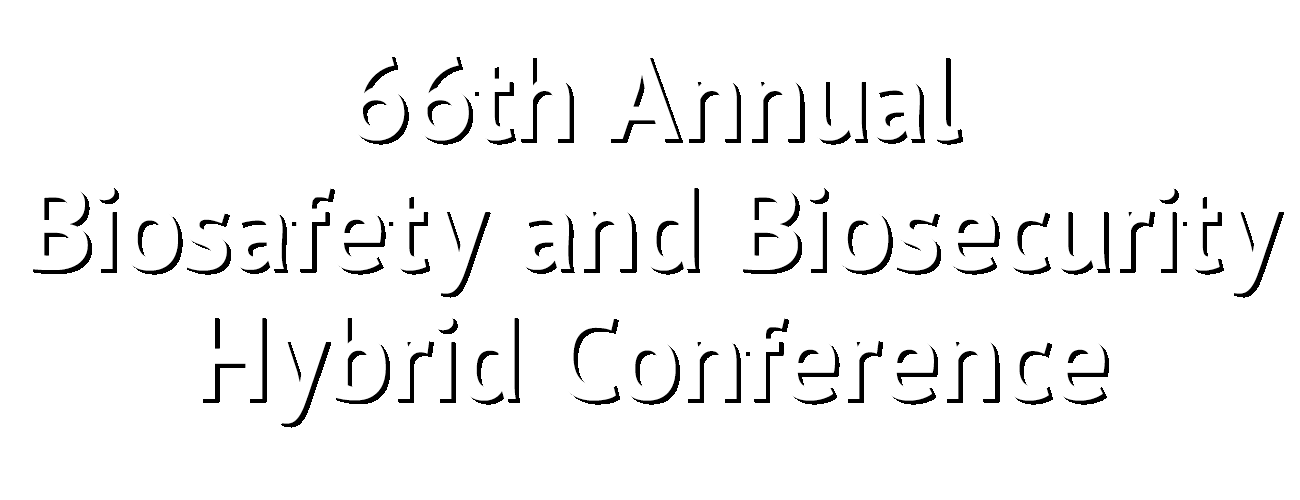




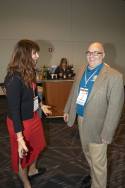









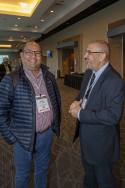




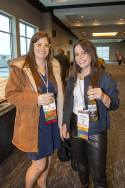
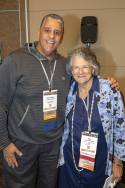


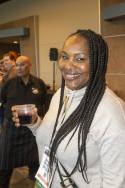











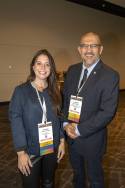

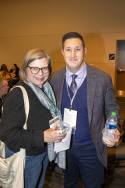


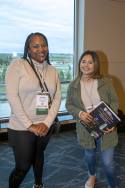




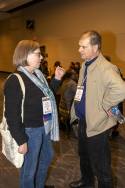
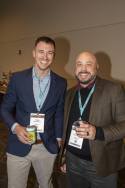




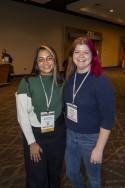








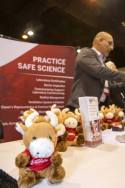













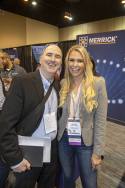


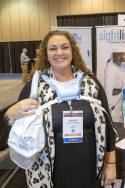




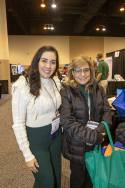






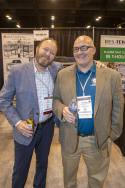




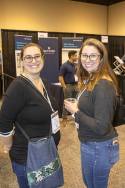




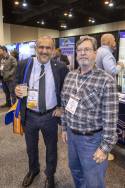





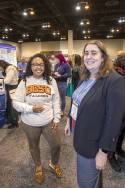
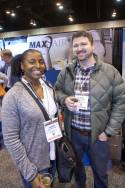



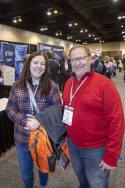




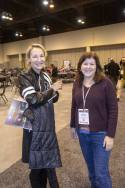


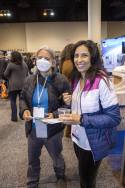

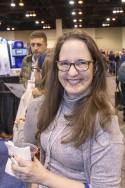




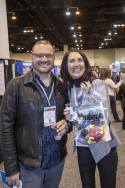





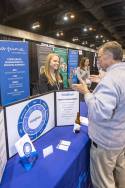









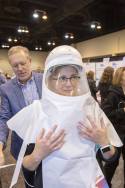
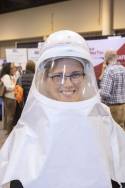




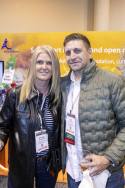





















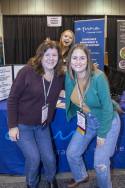
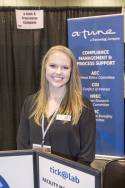
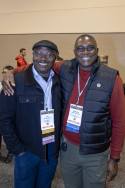
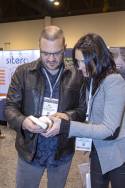
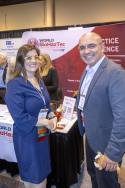

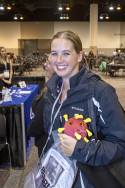

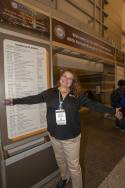

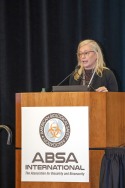
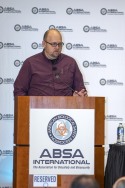
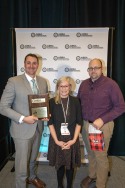
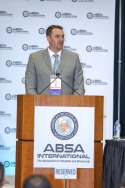
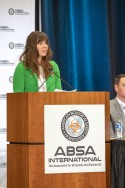

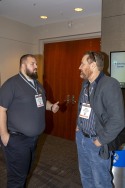
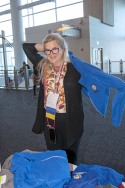

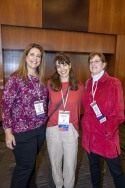
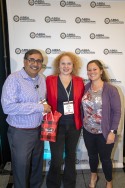

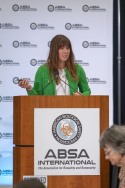
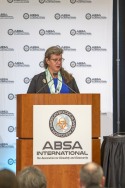
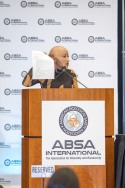
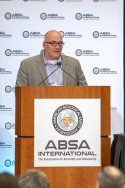
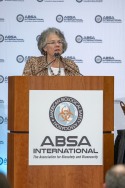
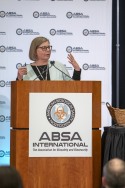
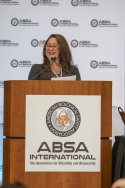
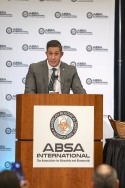





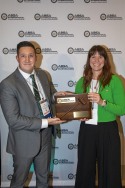
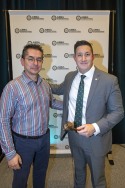
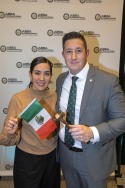

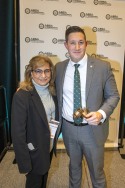
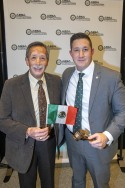
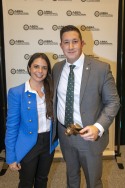
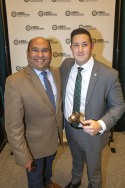
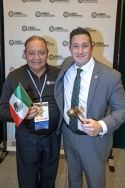
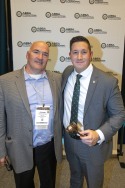
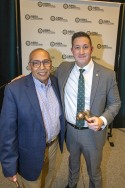
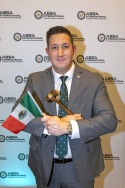
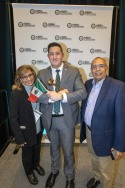



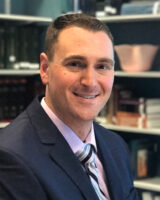
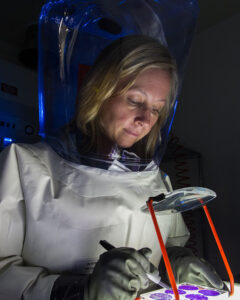
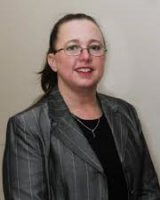

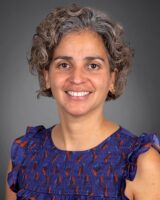


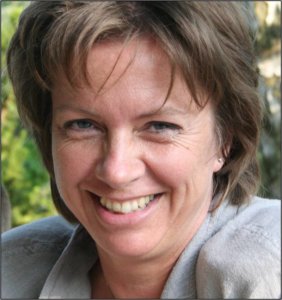
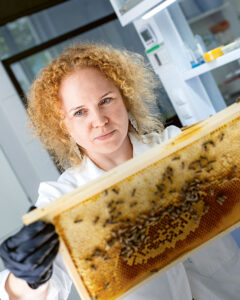

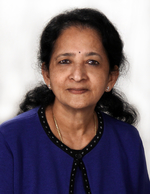

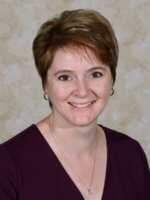

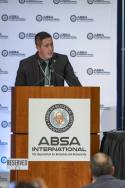
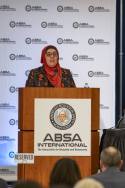
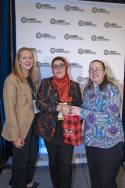
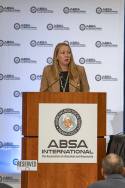
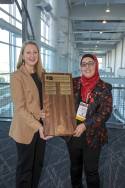


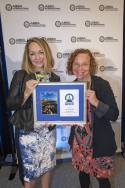
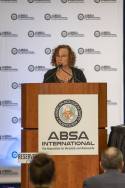






















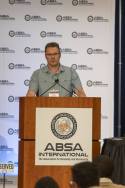







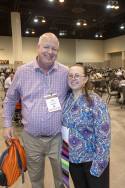



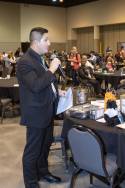
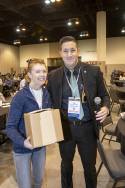
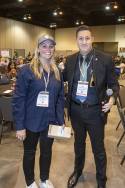
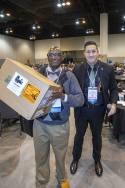
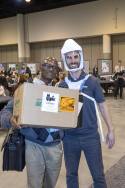

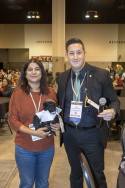
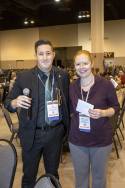
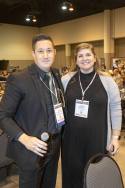
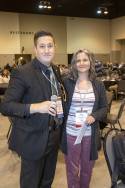


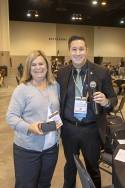
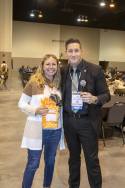
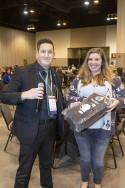
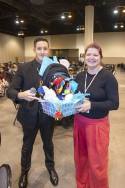
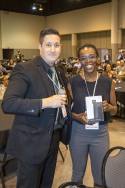
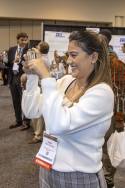
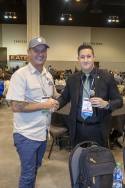
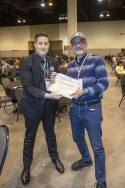
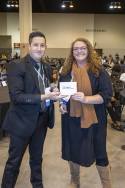
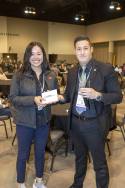
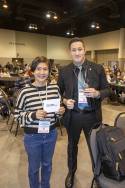
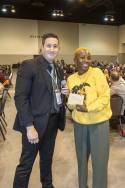
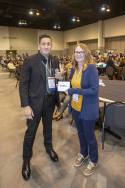
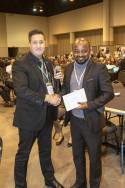
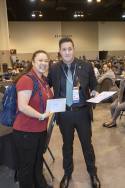
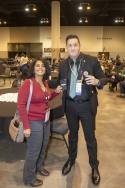
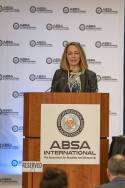
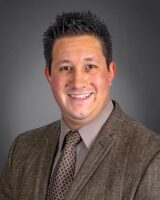
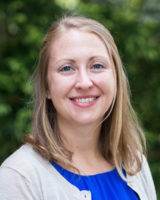


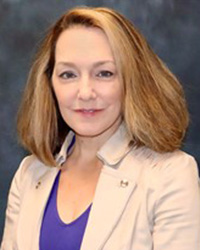
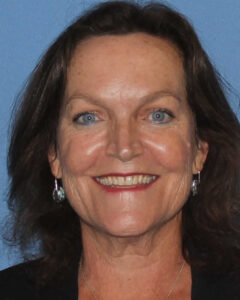 Darlene Ward, RBP works for Advarra as the Vice-Chair for the IBC Committee and is the Senior Biosafety Expert. Before joining Advarra, she worked for over 28 years in the Higher Ed Environmental Health and Safety field as a Biosafety Officer and Responsible Official overseeing researchers working with infectious diseases, recombinant DNA and select agents. She has a BS in Environmental Science from Florida State University and has been a member of ABSA for over 20 years serving on the Scientific Program and Preconference Course Committees.
Darlene Ward, RBP works for Advarra as the Vice-Chair for the IBC Committee and is the Senior Biosafety Expert. Before joining Advarra, she worked for over 28 years in the Higher Ed Environmental Health and Safety field as a Biosafety Officer and Responsible Official overseeing researchers working with infectious diseases, recombinant DNA and select agents. She has a BS in Environmental Science from Florida State University and has been a member of ABSA for over 20 years serving on the Scientific Program and Preconference Course Committees.